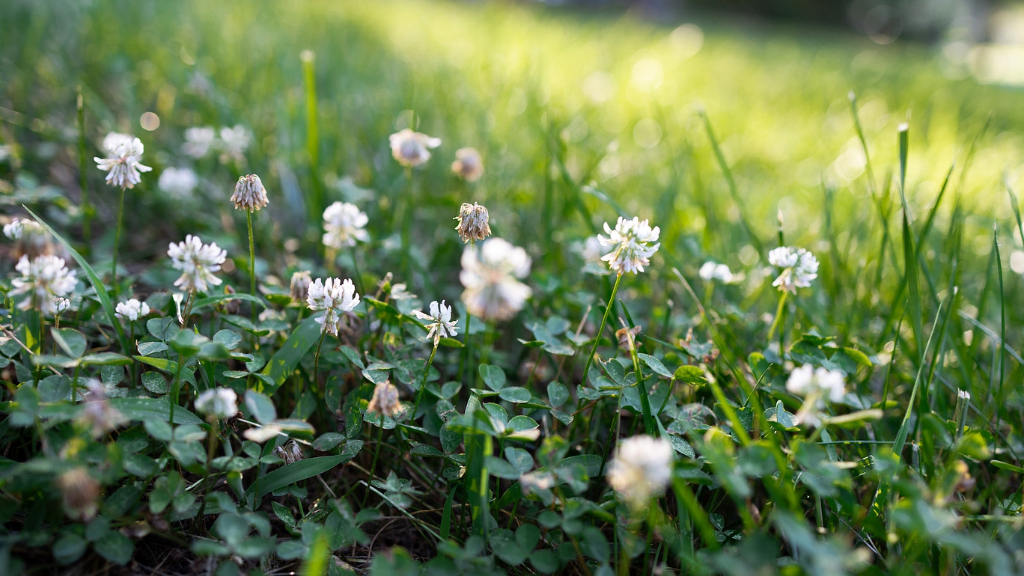Pros And Cons Of Clover Planting - Reasons To Plant Clover Vs. Reasons Not To


Clover is either a pretty little plant that you love, or a weedy pest that you hate. While this little plant may offer certain benefits, it's also important to consider the many disadvantages of clover. We're here to help with that. Let's take a closer look at both sides of this gardening coin and see which one you fall on.
Clover Planting Pros
(Mary Ellen's viewpoint) Although many consider it a weed, there are actually a lot of benefits of planting clover in your lawn. A clover-only lawn or a mix of grass and clover is healthier and more natural than all turf grass. It attracts pollinators and requires less maintenance. You'll have fewer weeds and less summer browning with clover in the lawn too. And these are just some reasons to grow clover. Here's all the reasons why I'm all for planting clover:
- Helps the bees. Clover in your lawn attracts pollinators. The flowers are a source of nectar for bees and other pollinators. Clover helps provide additional food sources for struggling bee populations, which in turn increases needed pollination in your garden.
- Reduces mowing. For those who dread yard work, one of the biggest reasons to grow clover is that it requires little to no mowing. White clover, the variety most seen in lawns, grows very low to the ground.
- Enriches the soil. As a legume, clover takes nitrogen from the air and changes it into a usable form in the soil. If you have a mix of grass and clover in your lawn, the grass will be healthier, and you can reduce fertilizer use.
- Avoids brown patches. While turf grass tends to go dormant and turn brown during the hottest part of the year, clover stays green thanks to its deep-reaching roots. And clover also resists browning from dog urine.
- Saves water. You can avoid summer browning with constant watering, but this is wasteful. More clover in the lawn means less water is needed to keep it green.
- Prevents weed growth. Of all the clover planting pros, this one may seem perplexing to some people who consider it a weed. If you plant it intentionally, with or without grass, you'll find that real weeds become much less of a problem. Few weeds can out-compete this sturdy plant.
Clover Planting Cons
(Mary's viewpoint) Okay, sure, there may be some good things to be said about planting clover, but are these really enough to warrant keeping the plant around? Not to me, and probably not to many others either. Here's why:
- Lack of durability. If you have children and pets, clover isn't as tough as turfgrass and won't stand up to hard use and heavy traffic unless it's mixed with grass. This is one of the major problems with growing clover, and may be an unpleasant surprise if you're expecting a sturdy, durable lawn.
- Appearance. You may not like the appearance of clover when it's in your lawn. It may look weedy, patchy, and uneven, especially when clover is combined with grass. This is one of the distinct disadvantages of clover if you prefer a neat, tidy lawn.
- Bee stings. Clover blossoms are rich in sweet nectar and a dense stand of clover can draw a lot of bees. Although the important pollinators are essential to a healthy environment, a clover lawn can be dangerous if anybody in your family is allergic to bee stings, or if you (or your kids) enjoy running barefoot in the lawn.
- Invasiveness. When it comes to clover planting cons, the plant's aggressive nature is at the top of my list. Clover sends out stolons, or runners, that grow across the surface of the soil to sprout new plants. The rambunctious plants can creep into flower beds, vegetable gardens, or your neighbor's lawn, competing with other plants for space, moisture, and nutrients.
- Green stains. Traditional turfgrass is notorious for staining clothing, but clover is much worse, and removing the stains is a huge challenge. This may not be one of the main disadvantages of clover, but scrubbing bright green stains out of your kid's favorite jeans is a gigantic headache.
In most cases, you'll find your own benefits of planting clover once you do it, or maybe not. Whether it's the low-maintenance aspect, the eco-friendliness of a clover lawn, or other reasons, consider using this natural plant in place of some or all of your turf grass. While this plant has many benefits, however, the disadvantages of clover shouldn't be overlooked either. Carefully consider the problems with growing clover before it's too late. Getting rid of clover without harmful herbicides is next to impossible once the plant established.
Sign up for the Gardening Know How newsletter today and receive a free copy of our e-book "How to Grow Delicious Tomatoes".

A Credentialed Garden Writer, Mary H. Dyer was with Gardening Know How in the very beginning, publishing articles as early as 2007.